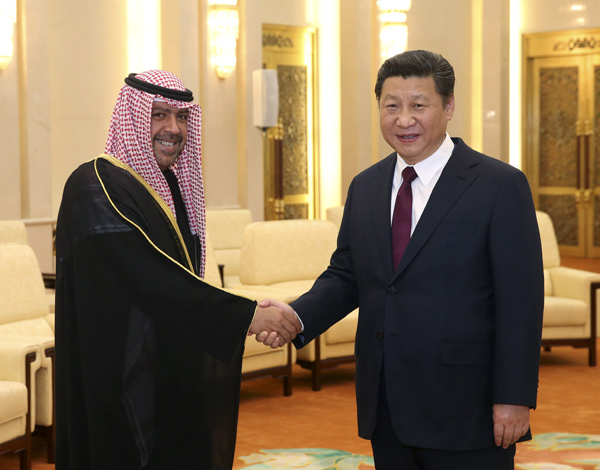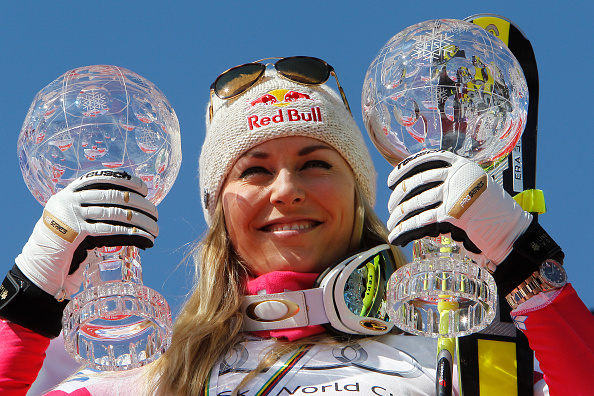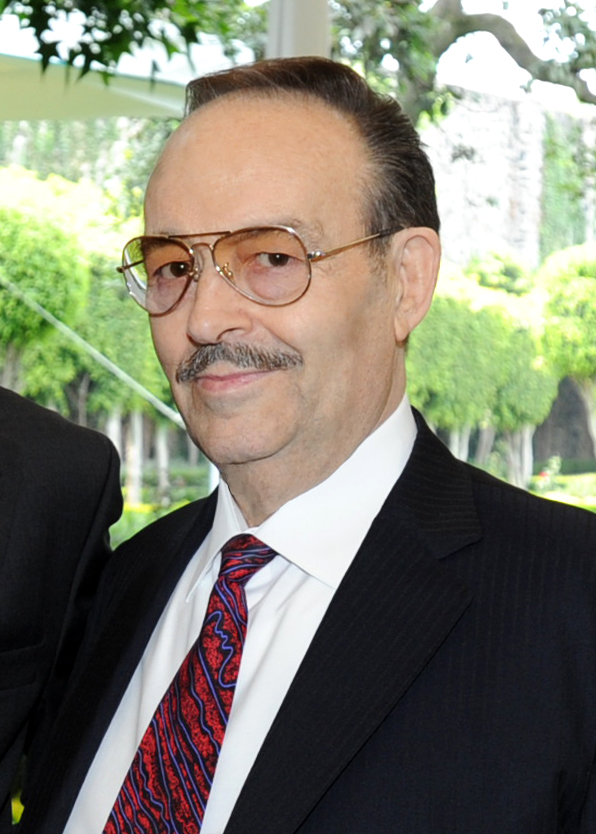The kabuki theater that marked the two-stop International Olympic Committee’s evaluation commission for the 2022 Winter Games wrapped up Saturday in Beijing. In this and a prior trip to Almaty, Kazakhstan, it can be said to have accomplished practically nothing of consequence. Here is why. The technical merits of these two bids are practically irrelevant, even if one might like to argue back and forth about whether the ski jump in Almaty is so close you can touch it or the ski run is so far away from Beijing it might as well be in Mongolia.
This 2022 race is the worst the IOC has conducted in its modern history.
Worse, by far, even than the 1984 Games “race,” when Los Angeles was the only entry.
Then at least you knew what was going to happen.
IOC elections can be unpredictable. Even so, this one would seem to be showing a lot of clarity already.
First and foremost, the 2008 Summer Games were in Beijing.
That means that some significant number of the IOC members have actually been to Beijing.
Moreover, the Nanjing Youth Games were just last summer. That means some number of members have been to China who knows how many times over the past several years and seen for themselves just how incredibly good the Chinese are at organizing Olympic events.
It’s true. The Chinese do grand Olympic scale stuff exceptionally well. Of course they do. This is not difficult: money plus resource plus the ability to tell people what to do equals prime-time showtime.
That gives Beijing a huge — and unfair — advantage over Almaty.
The dumb IOC rule that says the members are not allowed to visit candidate cities means that in this context they can’t visit either Beijing or Almaty. But most have already been to Beijing. So when the time comes this July 31 to make a 2022 choice at the IOC assembly in Kuala Lumpur, and the members know from just seven years ago, or even just last summer, that the Chinese are hugely capable, what button are they most likely instinctively to push?
This dumb rule, meanwhile, cuts both ways. It’s currently three hours from Beijing to what would be the ski venues in 2022. If the members were able to sit on a bus for three long hours and think about that — even though the Chinese say they’re going to build a high-speed rail to cut the travel time to under an hour — would they still want Beijing?
How does such an expensive high-speed rail fit into Agenda 2020, the IOC’s purported reform agenda? Let’s be real. The Chinese say the rail line to the ski resort is unrelated to the Games. Who believes that? Without the Olympics, is there all of a sudden this drive to get 300 million Chinese — about the population of the entire United States — to embrace winter sports, which has abruptly, indeed over just the past few weeks, become one of the drivers of the Beijing 2022 campaign?
The Chinese are masters of propaganda. Nothing in and of itself wrong with that. All countries engage in the stuff. But the opportunity has been dropped into their laps for Beijing to become the first city in the history of the modern Olympics to stage both the Summer and Winter Games -- and this from a country that didn't even come back to the Summer Games until 1984. Incredible.
More straight talk, meanwhile: when the Chinese government promises its full resource, that’s a huge guarantee. Especially for the IOC, and its Winter Games.
The IOC’s winter franchise is wobbly. Think about this 2022 race. Stockholm, Lviv, Krakow and Oslo all pulled out. Munich, the 2018 runner-up, was going to get in but didn’t after a 2013 no-vote referendum and just a few days ago, the head of the German Olympic confederation, Alfons Hörmann, said what everybody in Olympic circles knows all too well:
“It is bitter that Almaty and Beijing are the only ones left. It is now clear that Munich would have been served the Games on a silver platter.”
With Thomas Bach, from Germany, as the IOC president — Munich would have won not just a silver platter, but one piled high with turkey and cranberries and all the fixings. Or German sausage. Or whatever.
The resource of the Chinese government is important, indeed, because the federal Kazakh authorities have been, for some reason, slow in coming to the table with their full faith and credit.
In so doing, the Kazakh government may have squandered some very valuable backstage relationships — key one-to-one ties that within senior IOC circles are well-known, indeed.
Take, for instance, this seemingly unremarkable picture, captured by Xinhua in mid-January:
It shows Sheikh Ahmad al-Fahad al-Sabah of Kuwait, one of the most influential personalities within the Olympic movement, with Chinese president Xi Jinping.
The sheikh is, among other things, head of the Assn. of National Olympic Committees. He is also head of the Olympic Council of Asia. He seemingly has a proven capacity to move dozens of votes.
Just to be obvious, both Kazakhstan and China are in Asia.
How should this simple picture be interpreted?
Until a picture shows up just like this that features the sheikh with Nursultan Nazarbayev, the president of Kazakhstan, it’s pretty easy to understand exactly what this photo says.
Especially when you add in these remarks from the Xinhua story accompanying the sheikh’s visit to Beijing, which on their face would seem completely benign but are actually anything but, you can begin to parse certain key elements of the 2022 dynamic.
“Calling China an important cooperation partner of the ANOC, Sheikh Ahmad said the country had demonstrated its capability to hold large-scale international sport events.
“The Beijing Olympics and the Nanjing Youth Olympics were the pride of China and Asia, he said.”
This is not to say that Almaty is totally foregone. The bid has a great spirit that perhaps is just what the IOC needs. It also speaks far more to Agenda 2020, if indeed that package is real instead of aspirational, than does the Beijing proposition.
There’s little to no snow up in the mountains three hours from Beijing. No worries, IOC executive director Christophe Dubi told reporters this week: the Chinese would store water in reservoirs to make artificial snow. As opposed to Almaty, where every winter there is, like, real snow, and lots of it.
“Basically,” the chairman of the evaluation commission, Russia’s Alexander Zhukov said in Beijing at the wrap-up news conference there, referring to the China plan, “it is cold enough and everywhere there is sufficient water.”
As an environmental proposition, which wins? Moreover, which fits better with Agenda 2020?
Speaking of the environment:
How the IOC can even begin to entertain more jibber-jabber about the unfathomably bad air quality in Beijing when the same noise came forth in 2001 about 2008? This week, while the IOC team was on the ground there, readings for a benchmark pollutant in the air were more than six times what the World Health Organization considers safe.
Politically, as well: imagine seven more years of local and global protests against Tibet and human rights?
Principle 6 of the Olympic Charter, which requires host cities to secure the “rights and freedoms” set out in the charter “without discrimination of any kind,” was revised in December, at the IOC session in Monaco, in line with recommendation 14 of the 40-point Agenda 2020.
Yet, as Human Rights Watch asserted last week, “discrimination — on the basis of sex, gender, ethnicity, disability and sexuality, among others — remains rampant throughout China.”
Sophie Richardson, the advocacy group’s China director, said, “Host selections can no longer be made on promises of flashy infrastructure or glitzy opening ceremonies but now must require respect for fundamental human rights. Will the IOC enforce its own standards?”
In that same spirit, International Tibet Network member groups last week issued a position paper that called on the IOC “to reject [the Beijing bid] and in the context of events in China after the 2001 decision to consider with extreme caution the bid of Kazakhstan.”
This, then, is the dilemma the IOC finds itself in — one entirely of its own making — in the aftermath of the 2022 evaluation visits, full of show and short on meaning.
It could have reopened the 2022 race when there was a window to do so. But no.
Now, having a few months ago enacted the Agenda 2020 package, it remains to be seen whether — aside from the implementation of the Olympic TV channel, which assuredly is real — the rest of it is so much talk or, like many other well-meaning IOC vehicles over the years, just so many words.
A picture, they say, is worth a thousand.




















